Consortium Tackles Major Health Care Challenges in Multiple Projects
From working to improve health care outcomes for vulnerable populations to tackling societal issues through research and education, the UCSF/UC Law Consortium on Law, Science & Health Policy has a long list of projects it’s working on this year.
 Founded in 2008 as a collaboration between UC San Francisco (UCSF) and UC College of the Law San Francisco (UC Law SF), the Consortium leverages law and policy to address issues in health care systems and society, to advance health and well-being.
Founded in 2008 as a collaboration between UC San Francisco (UCSF) and UC College of the Law San Francisco (UC Law SF), the Consortium leverages law and policy to address issues in health care systems and society, to advance health and well-being.
Here are just a few of the projects and collaborations the Consortium is taking on this year:
California Bench to School Initiative (B2S)
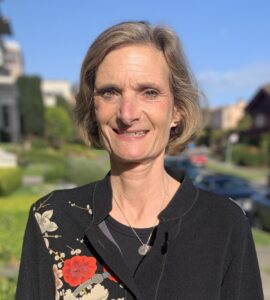
Liz Steyer is executive director of the Bench to School Initiative at UC Law San Francisco.
This initiative aims to disrupt the school-to-prison pipeline in California by addressing literacy outcomes in school settings with a multi-pronged approach. Establish by the California Legislature in June 2021, the initiative is a collaboration between UC Law SF, UCSF, and the UCLA School of Education.
Bench to School has brought together researchers, practitioners, and policy experts across three campuses to design collaborative projects for collective impact. Its long-term goal is to decrease the number of young people that get caught up in the criminal justice system by reforming legal, health, and educational systems to be more responsive to their needs.
Liz Steyer serves as executive director of the Bench to School Initiative at UC Law San Francisco. She works with a team at UC Law SF and collaborates with other teams at UCSF and UCLA.
Dana Center for Neuroscience & Society
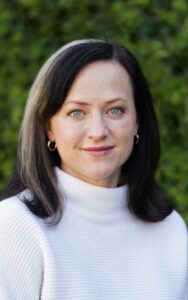
Professor Emily Murphy is among the core UCSF and UC Law SF faculty members involved in the Data Center for Neuroscience & Society project.
UC Law SF and UCSF were among 11 academic institutions recently awarded Dana Centers for Neuroscience & Society planning grants – the first phase of a project to establish a new center to “catalyze promising people and projects at the crossroads between neuroscience and other fields.” In the second phase, the 11 institutions will compete for two grants to establish a Dana Center for Neuroscience & Society.
During the planning grant period, core faculty and trainees took part in regular scientific journal meetings and sought feedback from community stakeholders on brain research and brain health issues. The team is currently preparing reports and a full grant proposal, including an interdisciplinary training program.
Core faculty for this initiative include UCSF Professors Jen James, Winston Chiong, and Dan Dohan, UC Law SF Professor Emily Murphy, and Sarah Hooper, executive director of the Consortium.
California Dementia Care Aware: Medical-Legal Partnership Network

Sarah Hooper, executive director of the Consortium, co-leads the MLP Network with colleagues at UCSF.
The Consortium is part of a network developing statewide curriculum to train primary-care teams on the common medical-legal needs of underserved patients with cognitive impairment. The training will include topics such as advance care planning, conservatorship prevention strategies, Medi-Cal access, caregiver leave laws, housing and long-term care, and elder abuse, among others. The Network is piloting a clinical phoneline that primary care teams can call to get help identifying socio-legal needs for patients and connecting them to local resources.
It’s part of a new statewide initiative called Dementia Care Aware funded by the California Department of Health Care Services. UC Law SF and UCSF are two members of the Medical-Legal Partnership (MLP) Network working on this project. The network also includes other universities, legal aid offices, and public health advocacy groups.
The MLP Network at UC Law SF is led by Sarah Hooper and by Anna Chodos and Josette Rivera at UCSF.
Clarity

Fellow on Aging and Disability Justice Denise Watt co-leads the Clarity team.
A federally funded research project, Clarity aims to develop an evidence-based online tool to help patients with dementia and their caregivers understand and navigate legal and financial planning for care.
Clarity is a collaboration between UCSF, UC Law SF, and People Designs, a health communications consulting and development firm. The team recently completed a study that gathered stakeholder feedback on site structure and design. Content development, including videos that illustrate key concepts, is now underway. The Clarity team at UC Law SF is led by Sarah Hooper and Denise Watt in partnership with Rebecca Sudore at UCSF and People Designs.
Medical-Legal Partnership for Seniors (MLPS) Clinic

Clinical Professor Yvonne Troya is legal director of the Medical-Legal Partnership for Seniors.
In this award-winning clinic, UC Law SF students, faculty, and law fellows provide holistic legal representation to low-income, mostly homebound older adult patients of UCSF and the San Francisco VA Medical Center. The clinic assists clients with a range of legal issues, including advance health care planning, estate planning, and public benefits. Participating law students learn from and alongside UCSF faculty and UC Law SF professors and attorneys.
Since August 2022, MLPS attorneys and students have represented over 150 older adults with complex medical, legal, and social needs. They conducted 15 medical-legal trainings for geriatricians and community members, and trained 16 law students in representation of low-income older adults.
The MLPS team is led by Yvonne Troya at UC Law SF and Megha Garg and Anna Chodos at UCSF.
The Source on Healthcare Price & Competition

Katie Gudiksen, senior health policy researcher at UC Law SF, is executive director of the Source.
With increasing consolidation of health care providers and rural hospitals struggling to maintain profitability, having access to information on the health care industry has never been more essential. That’s why UC Law SF launched the online publication The Source on Healthcare Price & Competition (“The Source”), which provides up-to-date and easily accessible information on healthcare prices and competition in the United States.
The Source gathers and posts news articles, policy papers, academic articles, litigation documents, and legislative/regulatory materials, as well as legal and policy-based analysis of those materials. It also to serve as a resource for journalists, state attorneys general, potential litigants, and others seeking to understand and/or promote cost control and competition in healthcare.
The Source is led by Executive Editor Katie Gudiksen at UC Law SF.
The MEND Project

Health Policy Researcher Alexandra Montague is part of a team working to address disparities in outcomes for pregnant patients.
Spurred by a new California law (SB464) that requires hospital-based perinatal clinicians to receive implicit bias training, the MEND Project seeks to improve care and outcomes for pregnant patients who are racial minorities, and Black patients in particular. The project has engaged Black birthing people, perinatal clinicians, and socio-legal scholars to produce evidence-based guidance for policy and health care stakeholders to consider in implementing the new law.
The MEND Project is funded by UCSF Preterm Birth Initiative and led by Sarah Garrett at UCSF. UC Law SF partners include Hooper, Health Policy Researcher Alexandra Montague, and Mallory Warner, associate director of the Master of Science in Health Policy and Law.
UCSF-UC Law SF Master of Science in Health Policy and Law (HPL)
This jointly-conferred master’s degree provides learners with knowledge and skills to advance positive change in health and health care. The HPL class of 2023 brings a wide range of experience in health care, including consumer advocacy, health care administration, state government, population health, social work, case management, medicine, nursing, and tech.
The HPL Program is led by Co-Directors Sarah Hooper and Janet Coffman and Associate Director Mallory Warner.
FACULTY SCHOLARSHIP HIGHLIGHTS
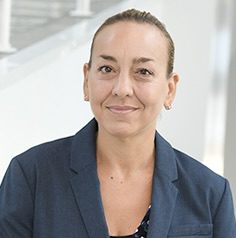
Professor Jennifer Oliva is a nationally known expert on drug law and reproductive justice.
Professor Jennifer Oliva has been in high demand nationally, traveling to speak on the impact of the Dobbs decision and other reproductive justice issues. She presented “Dobbs: Legal & Healthcare Implications,” at the Widener University Delaware Law School Faculty Colloquium and moderated a panel on “Dobbs: History, Context, and Consequences,” at the Consortium Symposium: Reproductive Justice in a Post-Roe World. She published “Pregnant Women and Opioid Use Disorder: The Legal Landscape for Controlling Women’s Reproductive Health, Am. J.L. & Med. (2022) (with Lynn M. Madden et al.) and “Does v. Gillespie,” in Feminist Judgments: Health Law Rewritten Opinions (Lindsay Wiley & Seema Mohapatra, eds.) (2023) (with Melissa Ballengee Alexander).
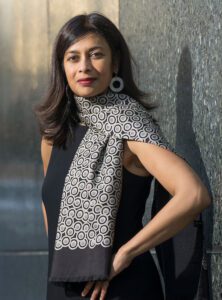
Professor Radhika Rao spoke about the impact of the Dobbs decision on privacy, intimacy, and the freedom of religion.
Oliva is also a nationally known expert in drug law and had a busy spring semester, presenting “Policing Opioids and Prosecuting Prescribers” at the Stanford Medicine Pain Relief Innovation Lab Monthly Distinguished Speaker Series and “Reimagining the Treatment of Individuals with Substance Use Disorders” at the American Society for Bioethics & Humanities. Additionally, she presented “Opioid Litigation: The Good, the Bad, and the Ugly” and “Reimagining Law and Policy Affecting Individuals with Substance Use Disorders” at the AALS Annual
Professor Radhika Rao has been active in the discussion surrounding the impact of the Dobbs decision on issues of freedom and privacy. She spoke at the 18th annual Ryan Bioethicist-in-Residence at Southern Illinois University in March, presenting on “Freedom of Religion after Dobbs,” at the Health, Equity, and Law after Dobbs Symposium at George Washington University Law School, Washington, DC in February, and discussing “The Impact of Dobbs on Privacy and Intimacy” at the After Dobbs: New Directions in Reproductive Justice conference, UC Davis Law in March.

Professor Thalia González is an expert on restorative justice, education law, health justice, and juvenile justice.
Professor Thalia González focuses on the areas of restorative justice, race and the law, health justice, education law and policy, and juvenile justice. She presented “Civil Rights and Minority Groups Joint Program—Critical Leadership, Accountability, and Justice Within Organizations” and “Criminal Law: Leaving Carcerality Behind: Thoughts on Intervention with Gender Violence,” AALS Annual Meeting, San Diego, CA. Professor González was awarded a $50,000 Spencer Foundation Grant (with colleagues at Loyola University Chicago Schools of Education and Law) for a series of convenings organized around the theme “An Antiracist Research Agenda to Advance Restorative Practices in PreK-12 Schools.” She also shared her expertise on student discipline in an interview on the national PBS Newshour broadcast.
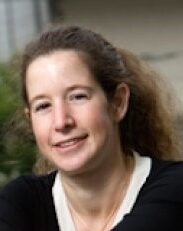
Professor Dorit Reiss is an expert in vaccine law and policy.
Professor Dorit Reiss is a national expert in vaccine law and policy. Her recent work includes presenting “A Human Rights-Based Analysis of Vaccine Mandates” at a webinar for the University of Limpopo School of Law and “AALS Hot Topic Program—Vaccine Mandates: Continued Controversy and Litigation in a Multitude of Settings,” at the AALS Annual Meeting. She also published “Vaccine Mandates and Religion,” Judges’ Book (2022). Professor Reiss moderated a panel on the National Vaccine Injury Compensation Program, featuring Chief Judge Elaine Kaplan, Chief Special Master Brian Corcoran, Dr. Jeffrey Gelfand, Heather Pearlman, and Kristina Grigorian at UC Law SF.
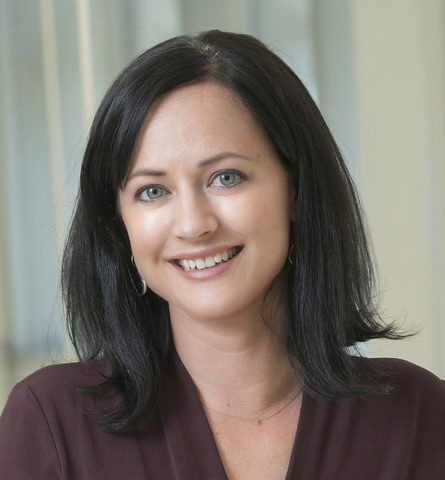
Professor Emily Murphy studies neuroscience and the law.
Professor Emily Murphy focuses on the intersection of neuroscience, behavioral science, and law. Stanford Law School Center for Law and the Biosciences is hosting a symposium on her article “Collective Cognitive Capital” (William & Mary Law Review 2022). This conference will bring together cutting-edge thinkers and scholars working across multiple disciplines to explore what collective cognitive capital is, what it would mean to center the concept in governance and public law, how brain and behavioral science can be translated to public policy promoting human flourishing, and what are the risks and limitations of such efforts.
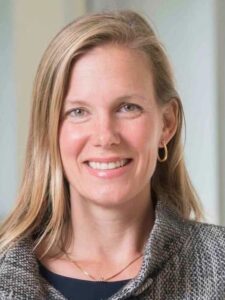
Professor Jaime King co-published an article on health care
Jaime King, Katie Gudiksen, Alexandra Montague, and Tim Greaney of UC Law SF, along with Daniel Arnold of UC Berkeley, published an article in the UC Law SF Journal entitled “Antitrust’s Healthcare Conundrum: Cross-Market Mergers and the Rise of the System of Power,” which was identified as one of the best works of recent scholarship relating to health law in a review published in Jotwell: The Journal of Things We Like (Lots). The team also recently published “The Rise Of Cross-Market Hospital Systems And Their Market Power In The US” in the journal Health Affairs and “Options For States To Constrain Pricing Power Of Health Care Providers” in the journal Frontiers in Health Services.
Greaney also led the team in filing an amicus brief in support of plaintiffs in Sidebe v. Sutter, an antitrust class action against Sutter Health on appeal in the Ninth Circuit. The brief describes the growing market power and anticompetitive conduct of some large health care systems.
MLPS Legal Director Yvonne Troya recently published “Exercising Control or Giving It Up? What Elder Law Attorneys Should Know About Continuing Care Retirement Communities,” in the NAELA Journal.